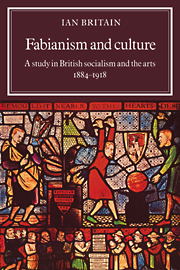Daniel Gilfillan: Pieces of Sound: German Experimental Radio (2009)
Filed under book | Tags: · germany, pirate radio, public broadcasting, radio, sound recording, streaming, tactical media

A cultural history of German radio broadcasting from the 1920s to today
Since the rise of film and television, radio has continued to evolve, with satellite radio and podcasts as its latest incarnations. Any understanding of the development of radio, like its visual counterparts, depends on closely examining the artistic ventures that preceded commercial acceptance.
In Pieces of Sound, Daniel Gilfillan offers a cultural history that explores these major aspects of the medium by focusing on German radio broadcasting, providing a context that sees beyond programming to consider regulations, cultural politics, and social standardization. Gilfillan showcases the work of radio pioneers and artists over the past century, including Brecht’s work with the form, and how radio was employed before and after World War II. He traces how German radio broadcasters experimented with networked media not only to expand the artistic and communicative possibilities of radio, but also to inform perceptions about the advantages and direction of newer telecommunications media like Internet broadcasting and pirate radio, which artists are using today to engage with a medium that is increasingly under corporate control.
Gilfillan astutely observes how claims made for the Internet today echo those made for radio in its infancy and puts forth a broad and incisive historical analysis of German cultural broadcasting.
Publisher University of Minnesota Press, 2009
ISBN 0816647720, 9780816647729
240 pages
PDF (updated on 2012-8-3)
Comment (0)Ian Britain: Fabianism and Culture. A Study in British Socialism and the Arts, c. 1884–1918 (2005)
Filed under book | Tags: · 1880s, 1890s, 1900s, 1910s, art, political theory, socialism, united kingdom

“This book is an attempt to remedy the neglect of the cultural and aesthetic aspects of English socialism in the late nineteenth and twentieth centuries. An outstanding symptom of this neglect is the way in which the Fabian Society, and its two leading lights, Sidney and Beatrice Webb, have usually been depicted as completely indifferent to art and to the artistic ramifications of socialism. Most commentators have painted Fabian socialism as a narrowly utilitarian programme of social and administrative reform, preoccupied with the mechanisms of politics and largely obvious of wider, more ‘human’ issues. One of the basic aims of the book is to question this bleakly philistine image, by showing the basis of the Fabians’ beliefs in romancism as well as utilitarianism.”
Publisher Cambridge University Press, 2005
ISBN 0521021294, 9780521021296
360 pages
PDF (updated on 2016-9-8)
Comment (0)Manuel Castells: End of Millennium, 2nd ed. (1998/2010)
Filed under book | Tags: · culture, economy, globalisation, labour, network society, networks, politics, society, statism

This final volume in Manuel Castells’ trilogy, with a substantial new preface, is devoted to processes of global social change induced by the transition from the old industrial society to the emerging global network society.
* Explains why China, rather than Japan, is the economic and political actor that is revolutionizing the global system
* Reflects on the contradictions of European unification, proposing the concept of the network state
* Substantial new preface assesses the validity of the theoretical construction presented in the conclusion of the trilogy, proposing some conceptual modifications in light of the observed experience
With a New Preface
Publisher Wiley-Blackwell, 2000
Volume 3 of The Information Age: Economy, Society and Culture
ISBN 1405196882, 9781405196888
488 pages

